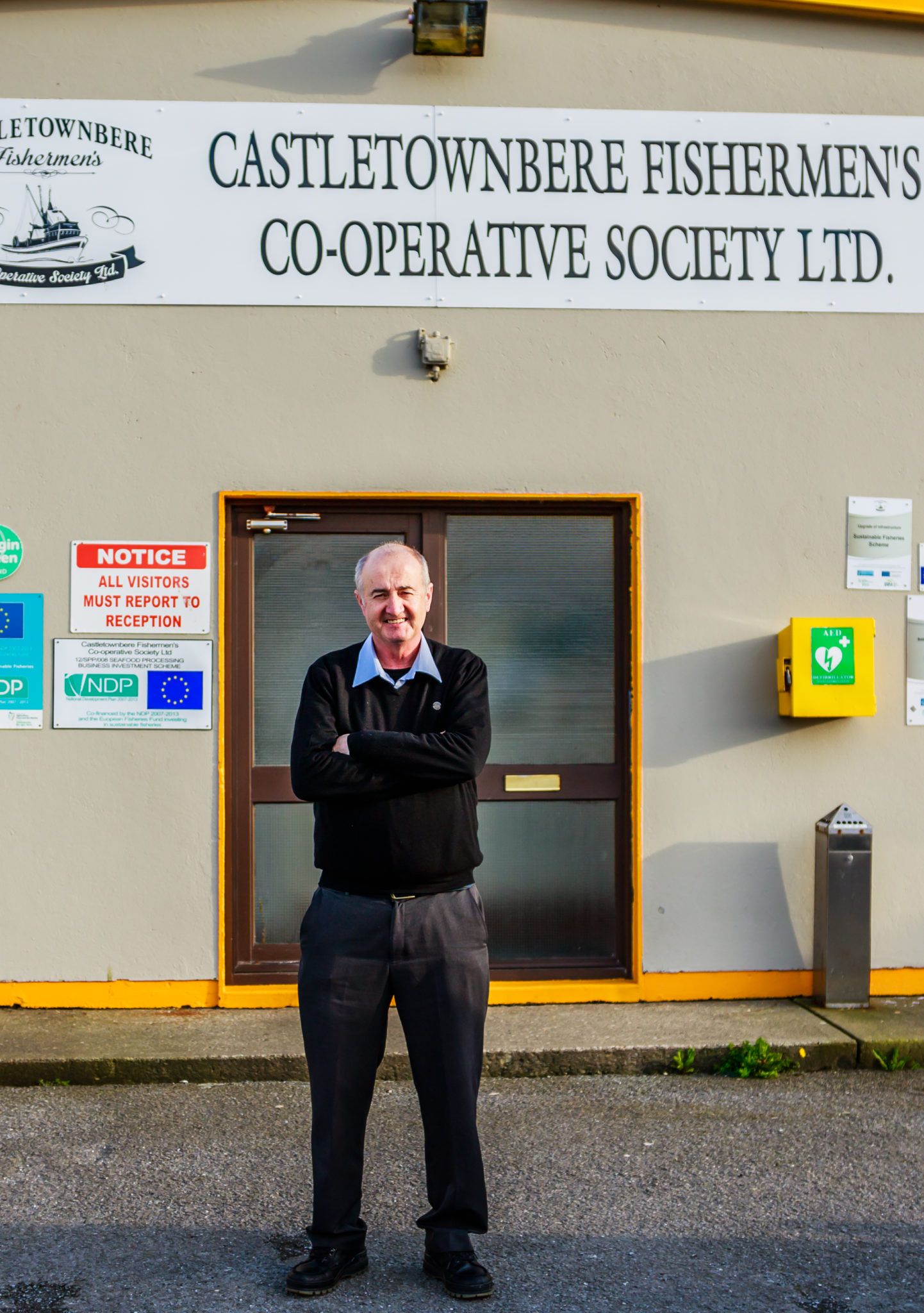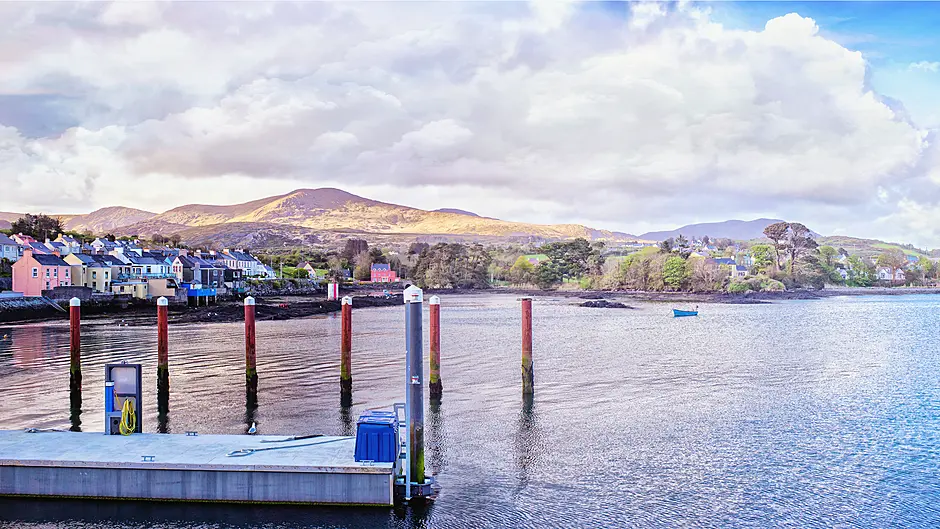Mary McCarthy spoke to Castletownbere Fisherman’s Co-op manager John Nolan on West Cork’s rich fishing tradition, the impact of Brexit and future challenges posed by global warming
FOR hundreds of years, fishing in Castletownbere has been the calling for the men of the sea.
‘Being a fisherman is an honourable profession that has been respected on Beara. It is a way of life. In fair weather and calm waters, trawler men have trusted the sea to catch fish to rear their families,’ according to John Nolan, manager at Castletownbere Fisherman’s Coop.
 John Nolan pointed out that Castletownbere is the world’s second deepest harbour. (Photo: Anne Marie Cronin)
John Nolan pointed out that Castletownbere is the world’s second deepest harbour. (Photo: Anne Marie Cronin)
The reward is the sense of being in the bay on the frontier. The unknown tomorrow is exciting, as is the camaraderie and the competition. They are the real people in the boats of the storms. They make demanding sacrifices six days a week, getting up at 5am and working until 6pm or 8pm.
‘Known locally as Castletown, it has the most lucrative waters for fishing in Europe,’ said John. ‘One reason for this is its deep waters. It is the second deepest harbour in the world after Sydney Harbour. Other reasons, include its crystal-clear waters, plankton, and enough old fish to feed on.’
Castletownbere is the white fish port of Ireland for landing hake, haddock, whiting, cod, plaice, lemon sole, turbot, John Dory, and brill.
Traditionally, fishing families have come from Bere Island, Dursey, Union Hall, Schull, and Cape Clear.
‘We are the third-generation of fishermen,’ John added. ‘We have developed it to being a commercial business, coming from a time when Ireland had been experiencing poverty. Days of the net and fish. Back then, the men of the sea didn’t have the tools of the trade. Thanks to 1950s government investment, this brought positive benefits.
‘Since fish on Friday is no longer an obligation, people now eat it for pleasure,’ he said. ‘We are grateful for this. It has made the Irish market. The people in this country are aware of the health benefits. It is 100% natural. There are no additives.
‘We are proud of being part of a cosmopolitan community in Castletownbere. Many have been fishing here: Dutch, German, French, Italian, and Spanish. Some have come here to live. They help our community. We give people a chance to make a living,’ John added.
In 1973, Ireland joined the EU. Then in 1976, the United Nations introduced quotas. Fishing was never regulated previously. Nowadays, there is a quota for every species of fish.
We are an island country. The potential could be far greater. Before the Brexit negotiations, Britain had a quota of 29.1% for plaice. And post-Brexit, they have 30%. That is a 0.9% increase in value.
Since Brexit, the Irish fishing community has been suffering. The loss of fishing rights to Britain has been high with Ireland taking 45% of the value. It has resulted in the co-op in Castletownbere losing €25m.
The soul of the fisherman has been knocked. And this has seen many young people going out of fishing.
Since Brexit, boats have been decommissioned. Five years ago, there were 64 boats in this port town. In 2024, there are only 36 boats left. The cost is a county where every family has been affected by losing a boat.
‘Hunger is a great motivator. We must be positive, and rally towards history and add to it. And we must rebuild wisely. Tourism is one opportunity to consider for the peninsula, because of the natural beauty of magnificent Beara. Interest in history includes the story of the copper mines in Allihies. Another advantage is our artistic community that appreciate the beautiful, natural light here. This adds value to their work,’ said John.
‘It is well known that tragedies include being lost at sea. Accidents happen. The heroes are their brothers who return to the mouth of the harbour after burying a relative,’ John added.
‘Over the last 25 years, we are grateful to the RNLI lifeboat that has saved 300 lives. One factor that is proving to be an advantage for safety is the forecast is now more accurate, and that helps,’ he said.
These days, global warming is making a difference. For herring and whiting to spawn, the conditions need to be right. Temperature is one of them. A warm environment isn’t suitable. To achieve this, fish go further north to spawn. This feeds other fish. That means some fish are leaving our waters.
‘Sometimes when offshore fishing, the crew on the boats see the sunset on the west point of Ireland,’ John concluded. ‘And they also see fishing and the value of their living. The important thing is the catch in the waters. And the skill in it.’









